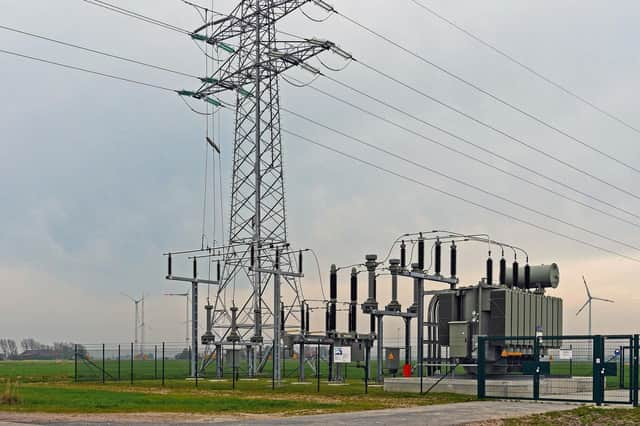Isles need an energy cost derogation


It will open the door to increases of £700 per annum with many households facing the doubling of bills. There are already 40 per cent of island households living in fuel poverty according to the accepted definition of more than ten per cent of its disposable income on fuel costs.
This week, the leader of Comhairle nan Eilean Siar, Roddie Mackay, called for “derogations” on the price cap rise for areas with the highest levels of fuel poverty. He also challenged the distribution surcharge which makes the cost of electricity higher in the north of Scotland.
Advertisement
Hide AdAdvertisement
Hide AdHe has asked for a meeting with energy regulator Ofgem to put forward possible measures and “find out what steps Ofgem, the Government and the energy companies are taking to mitigate this unacceptable situation”.
“I believe that Ofgem and the Government require to move away from a blunt ‘one size fits all’ approach around the Energy Price Cap and develop a more sophisticated policy position,” he said.
“It should be possible, for example, to identify the areas that are in highest fuel – or extreme fuel – poverty brackets and provide these areas with appropriate derogations.
“Ofgem and the Government could introduce some geographic variation, setting a lower Energy Price Cap for areas demonstrably suffering from fuel poverty and extreme fuel poverty. Although I would expect knee-jerk pushback from energy suppliers around this type of approach it could be achieved readily and easily through the use of postcode zones”.
Advertisement
Hide AdAdvertisement
Hide AdMr Mackay also called for an end to the distribution surcharge placed on all customers in the North of Scotland – a case which has been joined by all council leaders in the Highlands and Islands. He said: “This is an unfair and discriminatory charge that penalises customers in some of the most economically vulnerable parts of the UK.
“It is patently unfair that Ofgem and the government appear to have a ‘one size fits all’ approach around an increase in the Energy Price Cap but are happy to allow a geographically differentiated electricity distribution cost”.
While the current arrangements penalise the north as a whole, due to distances from the historic centres of power generation, they actually protect the Western Isles from even higher charges through a prohibition on electricity suppliers applying differential prices “within the area”.
It is understood there has been a recent review of the charging system that may lead to a lower proportion of the additional costs being borne by north of Scotland consumers alone, with the balance spread across the UK.
Advertisement
Hide AdAdvertisement
Hide AdHowever, local authorities are continuing to contest the principle of variable charging, pointing out that with the growth in the renewable energy generation benefitting the whole of the UK, it is an anachronism to impose a surcharge on areas now contributing substantially to the generation output.